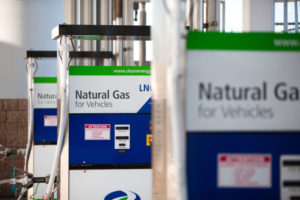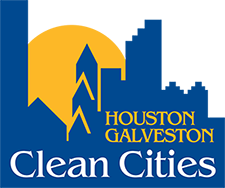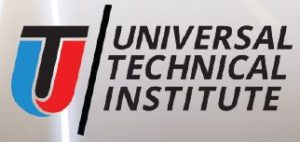 Clean Energy Fuels Corp. has introduced a new program that is designed to make the cost of leasing or purchasing a new natural gas heavy-duty truck equal to or less than the price of the same truck with a diesel engine.
Clean Energy Fuels Corp. has introduced a new program that is designed to make the cost of leasing or purchasing a new natural gas heavy-duty truck equal to or less than the price of the same truck with a diesel engine.
Clean Energy is launching the Zero Now Financing program with $100 million in credit support from its new strategic partner, oil and gas supermajor Total S.A., to cover the incremental portion of the truck value. Also, Clean Energy is partnering with multiple financial institutions.
The new natural gas trucks will take to highways equipped with a Cummins Westport ISX12N engine that has been certified by California Air Resources Board and the U.S. Environmental Protection Agency (EPA) at 0.02 g-NOx/bhp-hr and tested at 0.01 g-NOx/bhp-hr, which is at least 90% lower NOx emissions than current EPA NOx standards, according to Clean Energy.
In addition, trucks financed or purchased through the program will be able to purchase natural gas fuel at a fixed price significantly discounted to diesel for the term of the financing/lease through a unique hedging program.
“The Zero Now Financing program levels the financial playing field by removing the price differential of a natural gas truck versus a diesel truck. This combination will give fleets a considerable sustainability advantage, which could result in winning more business,” comments Andrew J. Littlefair, president and CEO of Clean Energy. “The goal is to significantly reduce the environmental impact of heavy-duty trucking and widen the adoption of natural gas as a clean, American-made fuel to move America’s goods around the country.”
Clean Energy already makes its Redeem renewable natural gas available at many of its public stations and will work with fleets to provide it wherever possible. Redeem allows customers to achieve a reduction in greenhouse-gas emissions by at least 70% versus diesel, the company claims.
Clean Energy operates a fueling network of over 100 public stations strategically located around the U.S. and Canada that accommodate Class 8 tractors. The company plans to add more to meet demand.
Source: NGTNews

 The World LPG Forum is THE annual global event for the LPG industry. This unique event travels the globe annually attracting key international agencies, policy makers, media and the highest level of industry leaders to explore the LPG business, discuss its growth potential and to forge new business relationships.
The World LPG Forum is THE annual global event for the LPG industry. This unique event travels the globe annually attracting key international agencies, policy makers, media and the highest level of industry leaders to explore the LPG business, discuss its growth potential and to forge new business relationships. Texas Propane Autogas Technician Training
Texas Propane Autogas Technician Training